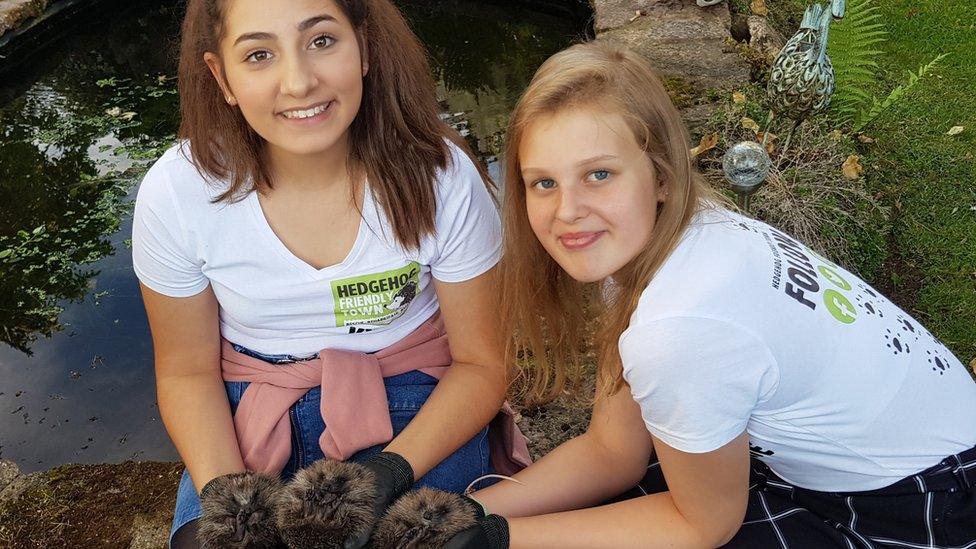Drop in RSPCA hedgehog calls 'evidence of decline'
- Published
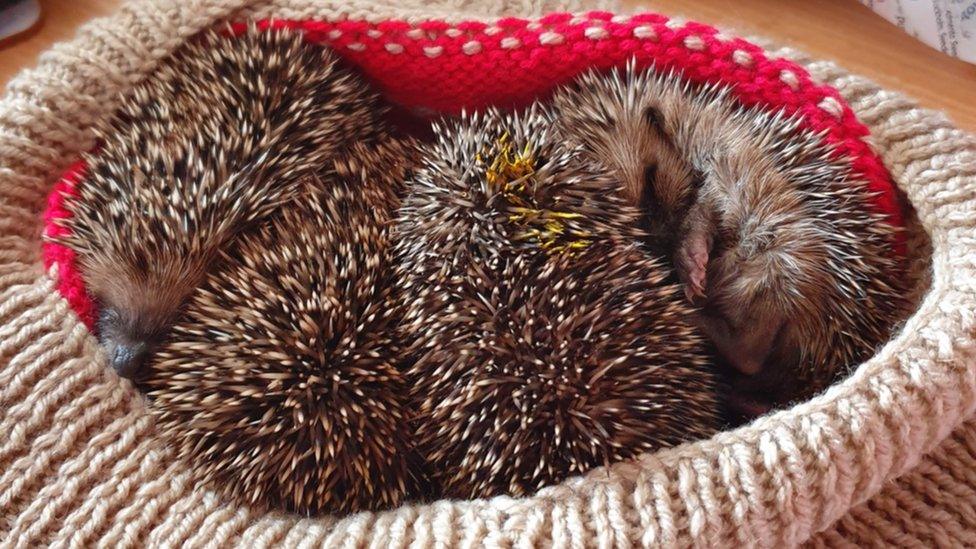
These four hoglets were abandoned by their mother and are being hand-reared at West Wales Hedgehog Rescue
The number of calls to an animal welfare charity concerning injured or trapped hedgehogs has fallen, leading experts to fear for the population in Wales.
RSPCA Cymru received 169 calls in July 2017 but this fell by almost a quarter to 128 in July 2019.
July is the month the small mammal is typically most active.
One ecologist said the figures were "clear evidence of a decline in hedgehogs".
The State of Britain's Hedgehogs 2018 report suggested hedgehog numbers had fallen by about 50% since the turn of the century.
Conservation groups said there were a variety of reasons for the mammals' decline including hedgerows and field margins being lost to intensive farming, the use of pesticides reducing the amount of prey available, fencing that prevents hedgehogs moving between gardens, increasing numbers of predators such as badgers and road deaths.
Recent incidents attended by RSPCA Cymru include rescuing a hedgehog from a storm drain in Mumbles, Swansea, another from a drainpipe in Llanelli and a pair from a pit where road works were being carried out in Whitchurch, Cardiff.
Ecologist Hugh Warwick said: "People are very aware of hedgehogs and are making a big effort - there are now nearly 67,000 hedgehog champions, external across UK.
"So unless there has been a sudden empathy deficit - which I very much doubt - it will be the case fewer people are seeing hedgehogs to report them.
"This is clear evidence of a decline in hedgehogs."
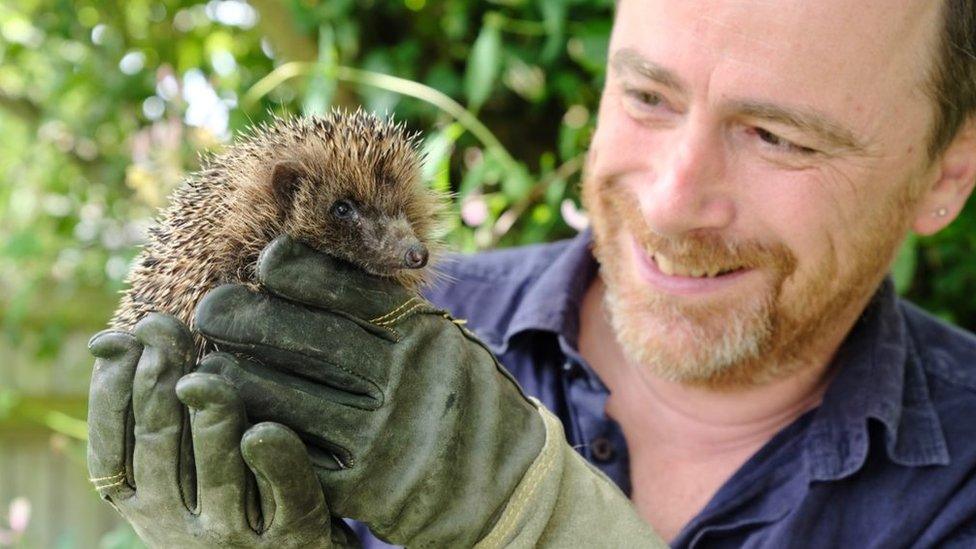
Hugh Warwick wants people to create so-called hedgehog highways by making holes under their garden fences
Prof Fiona Mathews, chair of the Mammal Society, said the fall could in part be explained by an increase in specialised hedgehog rehabilitators but added: "It is likely that at least some of the decline is because of a fall in hedgehog numbers.
"Other reviews, based on road kill and other information have also concluded that populations are declining."
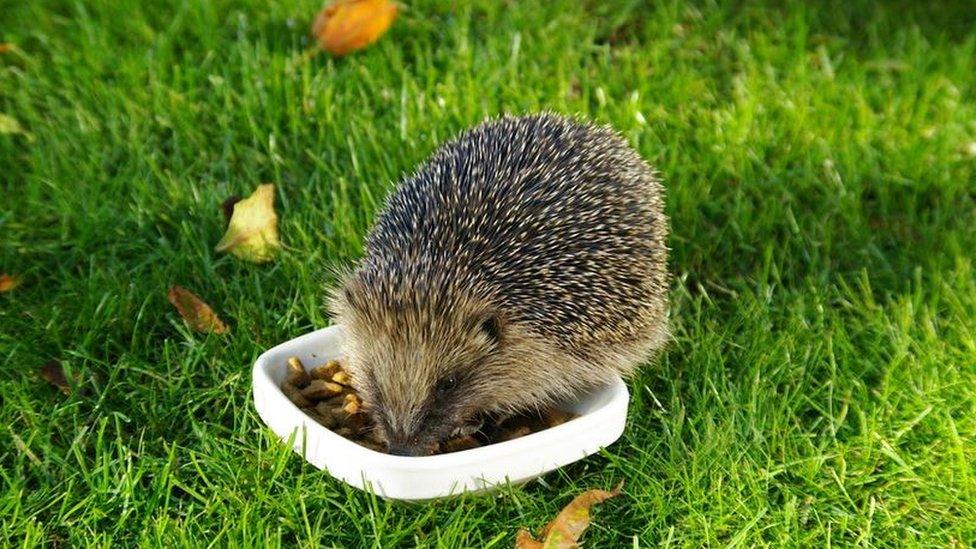
Charities advise people to leave meaty pet food and water in their garden for hedgehogs
Fay Vass, chief executive of British Hedgehog Preservation Society also thought the drop in calls could "possibly" be put down to a decline in numbers: "Hedgehogs have declined by half in rural areas and a third in urban ones since 2000.
"That said, we maintain a list of around 600 rehabilitation centres nationwide and most of them would probably tell you there's been an increase, lots are closed due to being totally full of casualties."

Tips for making your garden hedgehog-friendly
Allow a patch (or all) of your garden to be a bit wilder
Create a log pile house
Stop using pesticides and weed-killers as they wipe out hedgehog food
Link your garden to your neighbours' by creating a small hole in the fence
Remove any litter that can trap hedgehogs
Check vegetation for sleeping hedgehogs before using strimmers
Supplement hedgehogs' diet with meaty pet food and put out some water
(Source: Wildlife Trusts Wales)

Di O'Keeffe has been running West Wales Hedgehog Rescue in Cwmann, Carmarthenshire, for the past seven years. She does not keep track of the number of calls they receive but said they always had at least one call a day and that can go up to four a day in July.
"If anything we're getting busier," she said.
"I've had more hoglets in this year and we're still getting more in now.
"I don't know if it's because there's more hoglets about or because our neighbouring rescue centre closed down because another one has opened."
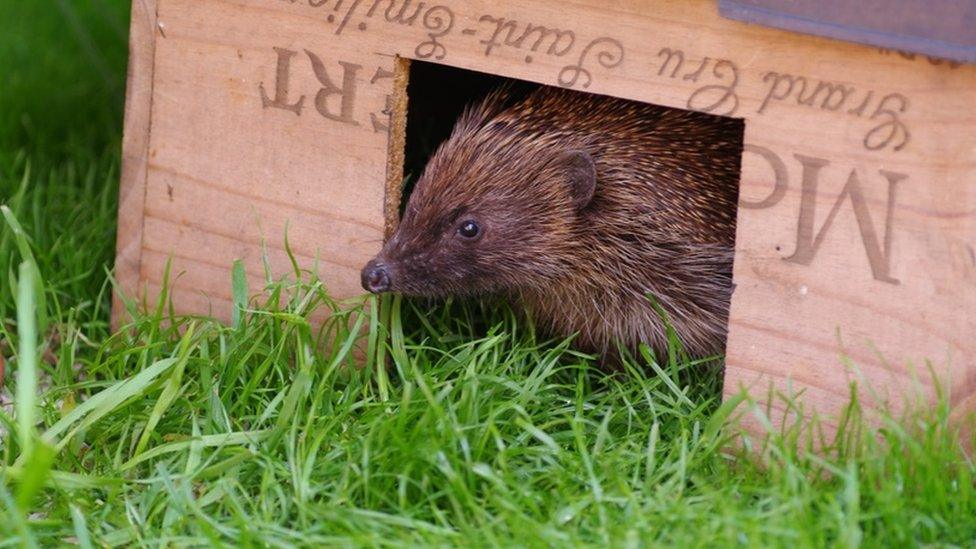
Gardeners have been asked to check vegetation for sleeping hogs before using strimmers
She urged people not to leave out mealworms or milk for hedgehogs as it can make them seriously ill.
Charities and ecologists are campaigning for a number of measures to help hedgehogs.
Asked if she could make one policy to help the mammals Prof Mathews said: "A simple one would be to prohibit the use of pesticides in public parks and other open spaces."
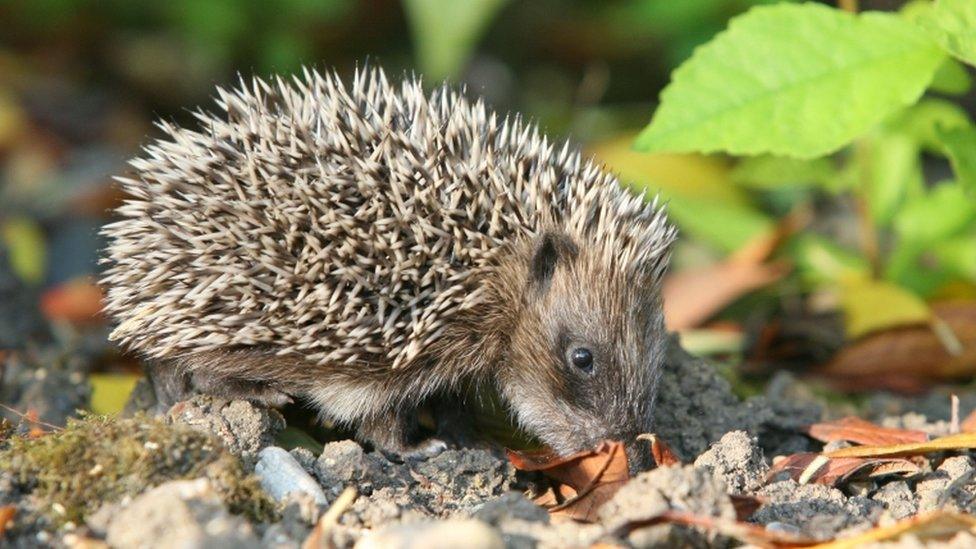
Hedgehogs have declined by half in rural areas and a third in urban areas since 2000
Ms Vass said she would target changes in planning policy: "Demand new builds have hedgehog highways in them and that sites are assessed, have resident hedgehogs safely relocated before work begins and mitigation put in place."
Mr Warwick would like to see a focus on "making sure there are wildlife corridors through landscape".
"There is an absurd preference for measuring quality of life from economic return rather than ecological returns," he said.
"It is do-able to change a landscape so it becomes a rich environment for wildlife and somewhere where humans can prosper too."
- Published7 February 2018
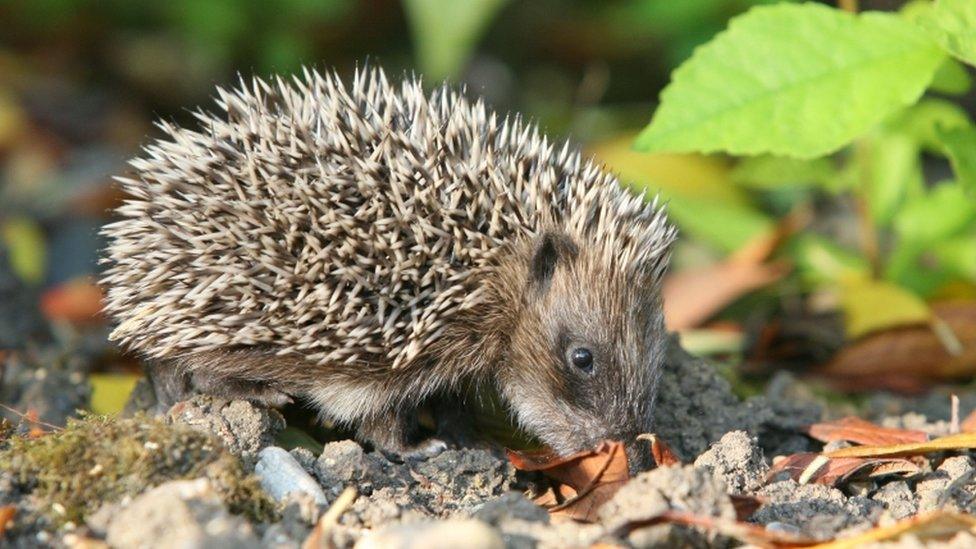
- Published21 July 2019
